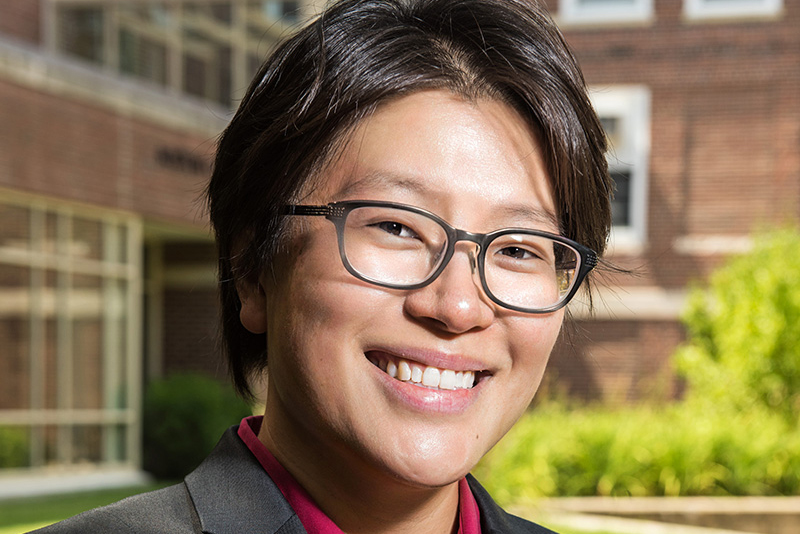Recognizing the serious economic and financial ramifications of the coronavirus (COVID-19) outbreak, four Boston College Law School professors have launched a project to analyze and track the emerging policy responses, including the provisions of H.R. 6201 (the “Families First Coronavirus Responses Act”) passed by the house on March 14.
Given that the responses being developed have limited time for assessment and evaluation—despite their likely dramatic impacts—Professors Hiba Hafiz, Shu-Yi Oei (above), Diane Ring, and Natalya Shnitser have produced a working paper, “Regulating in Pandemic: Evaluating Economic and Financial Policy Responses to the Coronavirus Crisis,” which will be updated continually to track developments.
“Having spent the past several years working together as part of Boston College Law School’s Regulation and Markets Workshop, it made sense to combine our efforts and expertise to try and contribute to effective policy guidance at this critical time,” Diane Ring explained in the Surly Subgroup tax blog this week.
As stated in the abstract, the Working Paper discusses the ramifications of proposed and legislated policy and other actions and identifies three interrelated but potentially conflicting policy priorities at stake in managing the economic and financial fallout of the COVID-19 crisis: (1) providing social insurance and a social safety net; (2) managing systemic economic and financial risk; and (3) encouraging critical spatial behaviors to help contain transmission.
“The consequences of these three policy considerations and the potential conflicts among them make the outbreak a significant and unique regulatory challenge for policymakers, and one for which the consequences of getting it wrong are dire,” the paper states.
The authors bring a wealth of experience to this project.

Oei teaches and writes in the areas of tax policy and economic regulation. Recent work has focused on innovations in the arena of human capital investments and the taxation and regulation of new industries such as the gig economy. Her research interests also include social insurance and the relationship between tax administration and economic security, and privacy and transparency in domestic and international tax enforcement and administration.

Ring currently serves as the associate dean of faculty and the Dr. Thomas F. Carney Distinguished Scholar at BC Law. She researches and writes primarily in the field of international taxation, corporate taxation, and ethical issues in tax practice. Her recent work addresses issues including information exchange, tax leaks, international tax relations, sharing economy and human equity transactions, and ethics in international tax.

Shnitser is the inaugural David and Pamela Donohue Assistant Professor in business law. Her current research focuses on retirement security in the United States, including the provision of retirement benefits by private and public employers and the regulation of financial intermediaries. Before joining the BC Law faculty in 2014, she was an Associate Research Scholar in Law and the John R. Raben/Sullivan & Cromwell Executive Director of the Yale Law School Center for the Study of Corporate Law.

Hafiz teaches and writes in the areas of labor and employment law, antitrust law, and administrative law. Her work focuses on legal solutions to labor market concentration and inequality. Previously, she clerked for at the US Court of Appeals for the First Circuit and the US District Court for the District of New Jersey and later practiced law in Washington, DC, representing plaintiffs in antitrust class actions against pharmaceutical companies and employers.


